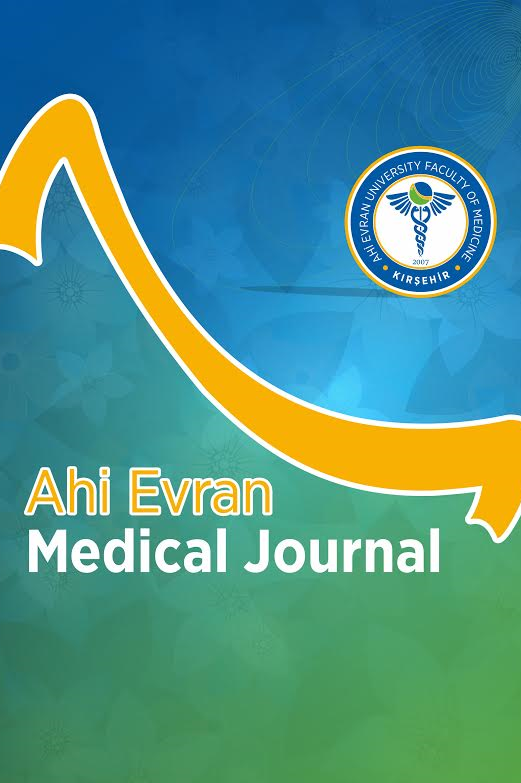Ebeveynlerin Covid-19 Aşı Kabulü: Çocuklarını Aşılatmaya İstekliler mi?
aşı kararsızlığı, aşı reddi, pandemi
Covid-19 Vaccine Acceptance Among Parents: Are They Willing to Vaccinate Their Children?
pandemic, vaccine refusal, vaccine hesitancy,
___
- 1. Forni G, Mantovani A; COVID-19 Commission of Accademia Nazionale dei Lincei, Rome. COVID-19 vaccines: Where we stand and challenges ahead. Cell Death Differ. 2021;28(2):626-639.
- 2. Li DD, Li QH. SARS-CoV-2: Vaccines in the pandemic era. Mil Med Res. 2021;8(1):1.
- 3. Chen M, Yuan Y, Zhou Y, et al. Safety of SARS-CoV-2 vaccines: a systematic review and meta-analysis of randomized controlled trials. Infect Dis Poverty. 2021;10(1):1-12.
- 4. Anderson EJ, Campbell JD, Creech CB, et al. Warp speed for COVID-19 vaccines: Why are children stuck in neutral? Clin Infect Dis. 2020;73(2):336-340.
- 5. Bartsch SM, O'Shea KJ, Ferguson MC, et al. Vaccine efficacy needed for a COVID-19 coronavirus vaccine to prevent or stop an epidemic as the sole intervention. Am J Prev Med. 2020;59(4):493-503.
- 6. Dubé E, Gagnon D, MacDonald N, et al. Underlying factors impacting vaccine hesitancy in high income countries: A review of qualitative studies. Expert Rev Vaccines. 2018;17(11):989-1004.
- 7. Goldman RD, Marneni SR, Seiler M, et al. Caregivers' willingness to accept expedited vaccine research during the COVID-19 pandemic: A cross-sectional survey. Clin Ther. 2020;42(11):2124-2133.
- 8. Kreps S, Prasad S, Brownstein JS, et al. Factors associated with us adults' likelihood of accepting COVID-19 vaccination. JAMA Netw Open. 2020;3(10): e2025594.
- 9. Harrison EA, Wu JW. Vaccine confidence in the time of COVID-19. Eur J Epidemiol. 2020;5(4):325-330.
- 10. Özceylan G, Toprak D, Esen ES. Vaccine rejection and hesitation in Turkey. Hum Vaccin Immunother. 2020;16(5):1034-1039.
- 11. Harmsen IA, Mollema L, Ruiter RA, et al. Why parents refuse childhood vaccination: a qualitative study using online focus groups. BMC Public Health. 2013;13:1183.
- 12. Khubchandani J, Sharma S, Price JH, et al. COVID-19 Vaccination hesitancy in the United States: A rapid national assessment. J Community Health. 2021;46(2):270-277.
- 13. Lin C, Tu P, Beitsch LM. Confidence and receptivity for COVID-19 vaccines: A rapid systematic review. Vaccines (Basel). 2020;9(1):16.
- 14. Al-Mohaithef M, Padhi BK. Determinants of COVID-19 vaccine acceptance in Saudi Arabia: A web-based national survey. J Multidiscip Healthc. 2020;13:1657-1663.
- 15. Neumann-Böhme S, Varghese NE, Sabat I, et al. Once we have it, will we use it? A European survey on willingness to be vaccinated against COVID-19. Eur J Health Econ. 2020;21(7):977-982.
- 16. Zhang KC, Fang Y, Cao H, et al. Parental acceptability of COVID-19 vaccination for children under the age of 18 years: Cross-Sectional online survey. JMIR Pediatr Parent. 2020;3(2):e24827.
- 17. Goldman RD, Yan TD, Seiler M, et al. Caregiver willingness to vaccinate their children against COVID-19: Cross sectional survey. Vaccine. 2020;38(48):7668-7673.
- 18. Pogue K, Jensen JL, Stancil CK, et al. Influences on attitudes regarding potential COVID-19 vaccination in the United States. Vaccines (Basel). 2020;8(4):582.
- 19. Yigit M, Ozkaya-Parlakay A, Senel E. Evaluation of COVID-19 vaccine refusal in parents. Pediatr Infect Dis J. 2021;40(4):e134-e136.
- 20. Wang Q, Xiu S, Zhao S, et al. Vaccine Hesitancy: COVID-19 and influenza vaccine willingness among parents in Wuxi, China-A cross-sectional study. Vaccines (Basel). 2021;9(4):342.
- Yayın Aralığı: Yılda 3 Sayı
- Başlangıç: 2017
- Yayıncı: Kırşehir Ahi Evran Üniversitesi
Ebeveynlerin Covid-19 Aşı Kabulü: Çocuklarını Aşılatmaya İstekliler mi?
Ali GÜNGÖR, Aytaç GÖKTUĞ, Betül ÖZTÜRK, Muhammed Mustafa GÜNEYLİOĞLU, Raziye Merve YARADILMIŞ, İlknur BODUR, Aysun TEKELİ, Can Demir KARACAN, Nilden TUYGUN
Gül KIRTIL, Medine ALPDEMİR, Mehmet Fatih ALPDEMİR, Mehmet ŞENEŞ
Şırnak İli Birinci Trimester Prenatal Tarama Testi Güncel Medyan Verilerinin Değerlendirilmesi
Veysel TAHİROĞLU, Naci Ömer ALAYUNT, Erkam COŞKUN
Yaşlı Hastalarda Uyku Süresi ile Koroner Arter Hastalığı İlişkisi
Pelin ÜNSAL, Mert EŞME, Cafer BALCI, Gözde ŞENGÜL AYÇİÇEK, Burcu BALAM YAVUZ, Meltem HALİL, Mustafa CANKURTARAN
Kan Grupları ile Psoriatik Artrit Arasında Herhangi İlişki Yoktur
Toplumda Antibiyotik Kullanımı: Bolu İlinden Bir Kesit
Makbule TOKUR KESGİN, Seher ZENGİN, Songül ÇAĞLAR
İnhale Kortikosteroidlerin Prepubertal Astımlı Çocuklarda İnsülin Direnci Üzerine Etkisi
Hayrunnisa BULUT YILDIZ, Zülfikar AKELMA, Sacit GÜNBEY
De Ritis Oranı (AST/ALT) Kolon Kanseri Evrelerini Tahmin Etmek Için Kullanılabilir Mi?
Saygın ALTINER, Enes CEBECİ, Bedri Burak SUCU, Mert ÇÖL, Ender ERGÜDER, Yılmaz ÜNAL, Salih TUNCAL, Mevlüt Recep PEKCİCİ
Ayşenur GÖKŞEN, Özgül AKIN ŞENKAL
Deneysel Hipertansiyon Oluşturulan Sıçanlarda Rosuvastatinin Böbrek Üzerine Koruyucu Etkileri
